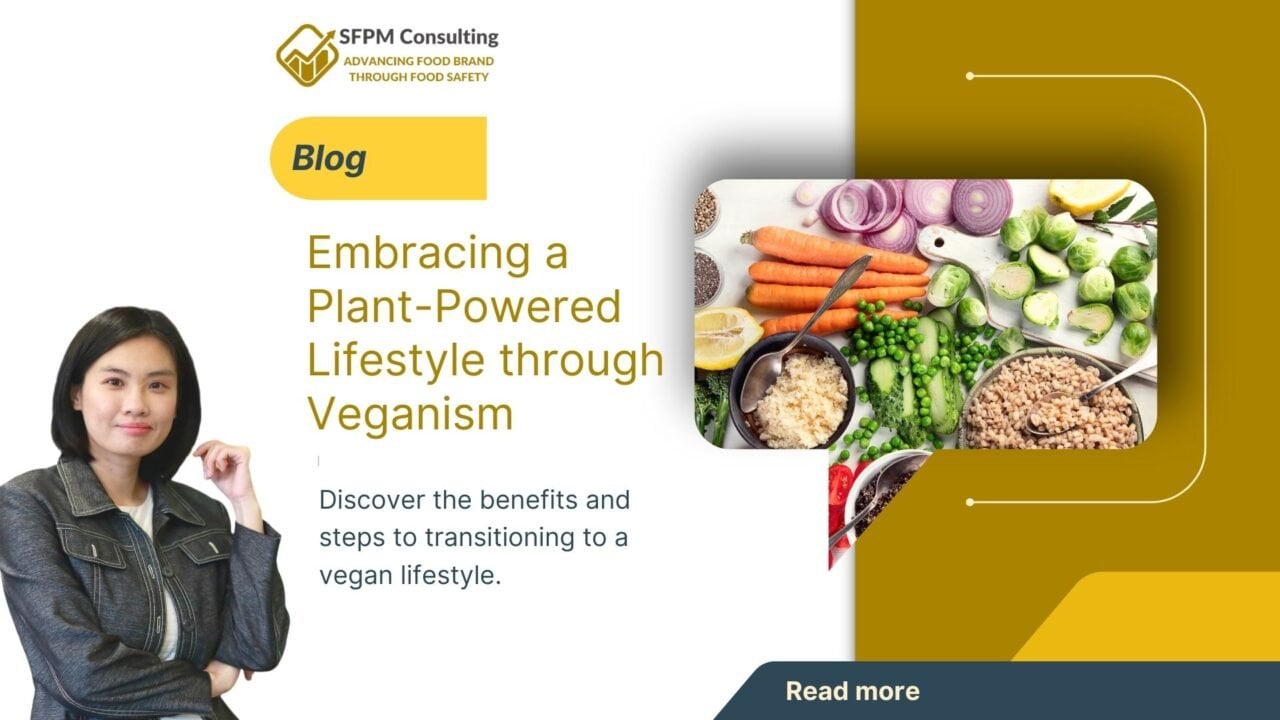Veganism is a lifestyle and dietary choice that is becoming increasingly popular in today’s society. What exactly does it mean to be vegan? In this blog post, we will explore the definition of vegan, the benefits of adopting a vegan lifestyle, and some tips on transitioning to a vegan diet.
What is Veganism?
So, what is veganism? Veganism is a way of living that seeks to exclude all forms of animal exploitation and cruelty, whether for food, clothing, or any other purpose. This means that vegans do not consume meat, dairy products, eggs or any other animal ingredients.
Instead, they rely on plant-based foods such as fruits, vegetables, grains, legumes, nuts, and seeds to meet their nutritional needs.
Why Choose this Lifestyle?
There are many reasons why people choose to follow a vegan lifestyle. Some do it for ethical reasons, believing that animals have the right to live free from harm and exploitation. Others choose veganism for environmental reasons, as animal agriculture is a major contributor to greenhouse gas emissions, deforestation, and water pollution. Some people also adopt a vegan diet for health reasons, as research has shown that plant-based diets can reduce the risk of chronic diseases such as heart disease, diabetes, and cancer (Petre, Health Benefits of a Vegan Diet 2022).
How To Transition into Being a Vegan?
Making the switch to a vegan diet may seem daunting at first, but with some planning and preparation, it can be quite simple. Here are a few tips to help you transition to a vegan lifestyle:
- Start by incorporating more plant-based foods into your diet. Focus on adding fruits, vegetables, whole grains, legumes, nuts, and seeds to your meals, and gradually reduce your intake of animal products.
- Experiment with new recipes and try out vegan alternatives to your favorite dishes. There are plenty of delicious plant-based options available, from veggie burgers and dairy-free ice cream to tofu stir-fries and lentil soups.
- Educate yourself about vegan nutrition to ensure that you are getting all the nutrients your body needs. Make sure to include sources of protein, iron, calcium, B vitamins, and omega-3 fatty acids in your diet.
- Be mindful of hidden animal ingredients in processed foods. Many food products contain hidden animal-derived ingredients such as gelatin, whey, and casein, so it’s important to read labels carefully.
- Connect with other vegans for support and advice. Joining vegan social media groups, attending vegan events, and finding vegan-friendly restaurants in your area can help you stay motivated and inspired on your vegan journey.
Veganism is a way of life that seeks to minimize harm to animals, protect the environment, and promote health and well-being. By choosing to follow a vegan lifestyle, you can make a positive impact on the world around you and create a more sustainable future for generations to come. So why not give veganism a try and see how it can transform your life for the better?
References:
- Petre, A. (2022, March 30). Health Benefits of a Vegan Diet. Healthline. https://www.healthline.com/nutrition/vegan-diet-benefits

